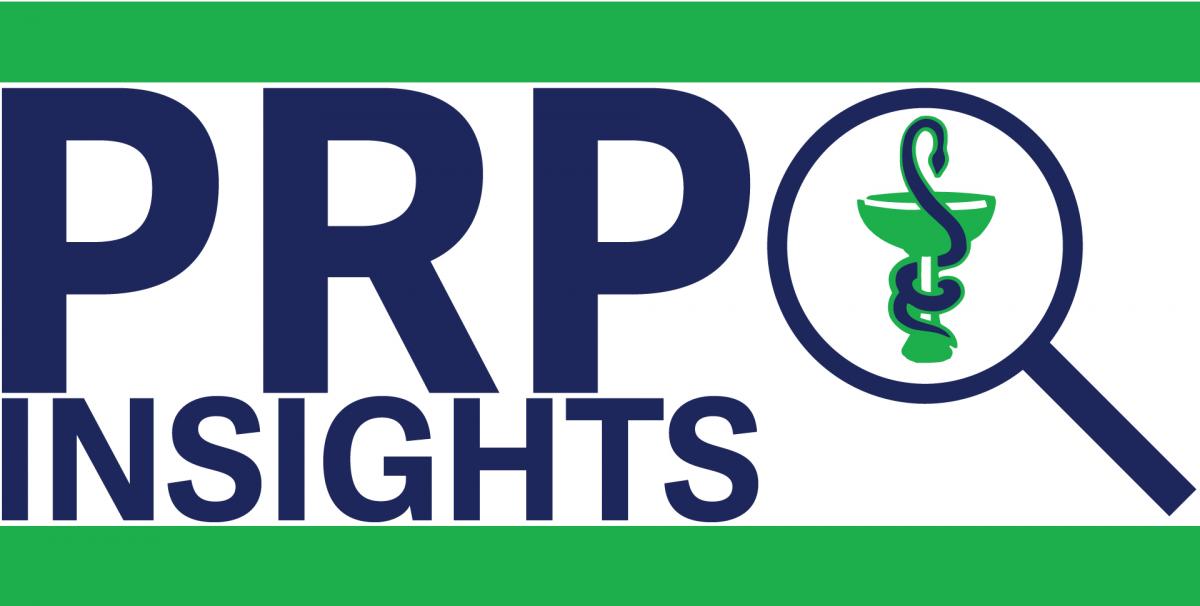PRP INSIGHTS: ADDRESSING GAPS IN THE PROVISION OF PATIENT COUNSELLING IN COMMUNITY AND HOSPITAL SETTINGS
It is vital that pharmacists understand the role they play in helping to manage a patient’s health. One of the key functions of a pharmacist is to provide drug education and monitoring through patient counselling. The provision of patient counselling is critical to ensure that the patient receives and understands important information related to their drug therapy at the time of dispensing both new and refill prescriptions.
This article reviews the requirements for counselling and will shed some light on situations where Compliance Officers have observed gaps in the provision of patient counselling in both community and hospital settings. The relevant bylaw requirements for counselling in community and hospital settings are outlined below:
COMMUNITY PHARMACY STANDARDS OF PRACTICE
Health Professions Act Bylaws Schedule F Part 1 s.12(1): 12. (1) Subject to subsection (2), a full pharmacist must consult with the patient or patient’s representative at the time of dispensing a new or refill prescription in person or, where not practical to do so, by telephone. HOSPITAL PHARMACY STANDARDS OF PRACTICE
Health Professions Act Bylaws Schedule F Part 2 s.8: (8) A full pharmacist, or a limited or student pharmacist under the direct supervision of a full pharmacist, must provide drug consultation to an outpatient or the outpatient’s representative, or to an inpatient on request. |
Hospital pharmacies dispensing prescriptions to outpatients
During Pharmacy Professionals Reviews, Compliance Officers continue to observe gaps in practice where hospital outpatients are not counselled on their medications. Commonly, this includes new and refill prescriptions of home IV, chemotherapy, hormonal therapy and antiretroviral medications. Patient counselling must be provided for all new and refill prescriptions dispensed to hospital outpatients, regardless of how frequently a medication is dispensed.
Similar to patients receiving their prescriptions from a community pharmacy, outpatients are often self-managing their medications without the direct oversight of the medical professionals in the hospital. It is important that these patients are provided with pharmacist-patient counselling to ensure that they are educated on their drug therapy, how to use it correctly and how to effectively self-monitor. As a patient’s health is dynamic, it is important to recognize that problems in drug therapy can occur at any time, not just upon initiation of a new drug. Through conversation with patients, refill consultations can help identify drug therapy or compliance problems which may not be apparent by only reviewing the patient record. It is prudent to note that counselling can be performed at any time in the dispensing process. If there are challenges to providing counselling at pick up, pharmacists may opt to provide counselling at the time the prescription is requested by the patient.
The specific counselling requirements for hospital outpatients would follow the Community Standards of Practice, which can be reviewed in our previously published article PRP Insights: Counselling in Community Pharmacy.
Community or hospital pharmacies sending medications by delivery or releasing to a patient’s representative
Situations in which a patient is not physically present to receive pharmacist-patient counselling are not uncommon. There may be several reasons why a patient may not be present to pick up their prescription at the pharmacy. Whether the prescription is being released to the patient’s representative or delivered to the patient, the requirements for counselling remain the same.
Pharmacists must be mindful that the absence of an in-person pharmacist-patient interaction does not negate the requirement to counsel. According to HPA bylaws, prescription counselling must be provided to the patient or the patient’s representative in person or where not practical to do so, by telephone. If a patient is unable to come in to pick up their prescription, the pharmacist may provide counselling however they feel most appropriate, either through the patient representative or by calling the patient directly.
Conclusion
When assessing counselling during Pharmacy Professionals Reviews, Compliance Officers regularly observe pharmacists identifying drug therapy problems that require intervention. Even during routine refill consultations, pharmacists are identifying issues such as incorrect patient, wrong drug, improper administration, adverse drug reactions, drug-drug interactions and drug-food interactions.
The consequences for a patient who is not taking their medications correctly can be costly and dangerous, often leading to poor disease management, increased emergency room visits, longer hospital stays and even death. All of these outcomes put more stress on our health care system. Pharmacists have a critical role in helping to alleviate some of these preventable stresses by providing education, follow-up and monitoring through patient counselling. Although challenges may sometimes exist, pharmacists must be mindful of their responsibility to counsel and should implement processes to ensure this occurs if not in person with the patient, then by phone or through the patient’s representative.
For a detailed discussion on counselling requirements, please see our previously published articles:
- PRP Insights - Counselling in Community Pharmacy
- Practice Review Program - Counselling
- PRP Insights - Hospital Pharmacies Providing Pharmacy Services to Outpatients: Releasing Medications
If you have any questions or concerns, please contact the practice support team at practicesupport@bcpharmacists.org.
To learn more about the Practice Review Program, including how to prepare for your review, visit bcpharmacists.org/prp.
- Practice Review Program, PRP Insights
 Share
Share



